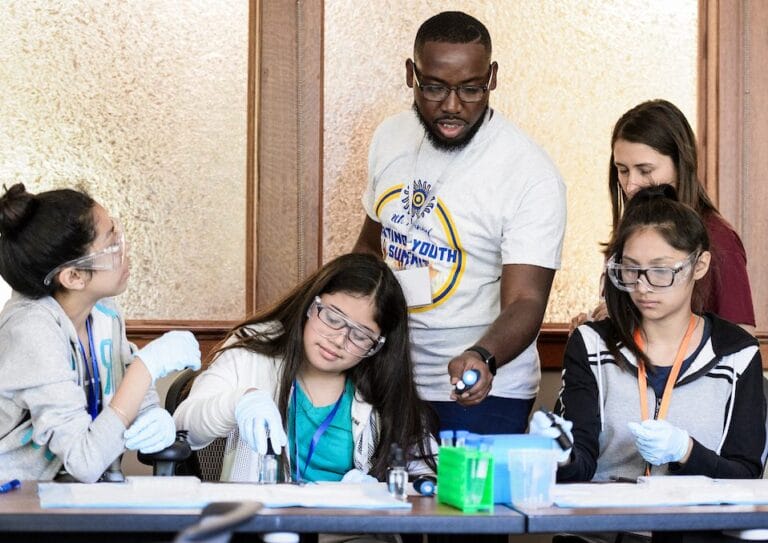
Our safety commitment: Youth protection
University of Wisconsin–Madison precollege programs achieve high standards for educational and recreational experiences. We recognize that working with youth is not the same as working with college-age students. The University of Wisconsin–Madison is committed to the well-being, safety and protection of all members of the University community, including minors. The University community recognizes that minors are a vulnerable population, and they require special attention and protection. Therefore, we follow specific youth protection policies, laws, licensing requirements and best practices. This ensures that all participants are safe and protected while attending any UW–Madison precollege program.

Staff screening, training and supervision
All program staff (UW-Madison employees, volunteers and contractors) are screened and trained before they are allowed to work with minors in a program. Requirements for program staff include:
Screening
UW–Madison policy requires criminal background checks for employees, volunteers and contractors who hold positions of trust. This includes people with direct access to a vulnerable population such as minors. Employees, volunteers and contractors who work with minors in precollege programs are subject to a criminal background check every two years.
Training
Program staff are required to complete safety and youth protection training before the start of a precollege or youth program. This training includes courses in CPR, first aid, preventing sexual harassment and sexual violence, mandated reporting of child abuse or neglect and youth mental health first aid. All precollege programs also conduct staff training in emergency procedures and communications.
Supervision
UW–Madison policy outlines minimum staff-to-participant ratios that programs must maintain for all age groups. Ratios depend on the age of the participants, whether programming takes place during the day or overnight, and the level of risk associated with specific activities (for example, water-based activities). The policy also prohibits one-on-one contact between an adult and a minor, provides guidelines for privacy and forbids inappropriate use of technology.